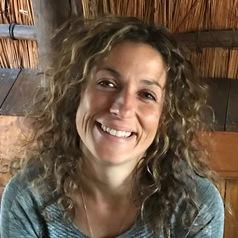
Marine Drouilly
Researcher, conservation and wildlife ecology , University of Cape Town
Marine Drouilly is the regional coordinator for carnivore surveys and research in West and Central Africa for the NGO Panthera. Marine's research interests are in conservation and wildlife ecology and she is particularly interested in human-carnivore relationships. Her current projects span across West and Central Africa. Marine is also a research associate at the Institute for Communities and Wildlife in Africa (iCWild), and at the Centre for Social Science Research (CSSR) at the University of Cape Town in South Africa.
Less ![]()
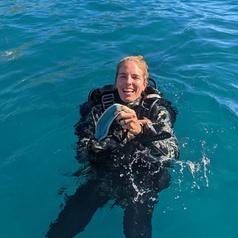
Marine Gouezo
Postdoctoral research fellow, Southern Cross University
Marine’s research interests lie primarily in coral reef recovery along environmental gradients, whether recovery occurs naturally or is kickstarted by restoration actions. Her overarching research goal is to pinpoint what slows down the recovery of reefs, which often differs from reef to reef, to offer context-specific management options to fix it.
Less ![]()

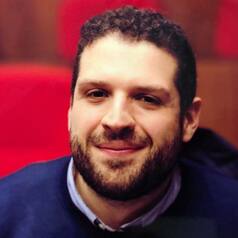
Mario Campana
Lecturer in Marketing, University of Bristol
Mario is a Lecturer in Marketing in the School of Management. He earned his PhD at Bayes Business School (formerly Cass) in 2015 and he held the position of Lecturer in Marketing at Goldsmiths, University of London, between 2015 and 2021. His research interests lie broadly within consumer research, and consumer culture theory specifically. His research programme looks at three consumer research domains: (1) materiality, (2) diversity and inclusion, focusing LGBTQ+ themes, and (3) alternative modes of market exchange. His approach is qualitative and interpretivist, and bridges marketing and management.
His work has been published in internationally recognised journals (e.g. Journal of Macromarketing, International Journal of Consumer Studied) and has been presented to leading conferences in marketing and management (e.g. Association of Consumer Research, Consumer Culture Theory, European Marketing Academy Conference, Academy of Management Annual Meeting).
Less ![]()

Mario Fernando
Professor of Management, University of Wollongong
Dr Mario Fernando is a Professor of Management with the Faculty of Business and Law, and the Director of the Centre for Cross-Cultural Management at University of Wollongong.
He is a Visiting Fellow at Cornell University and an Attorney-at-law of the Supreme Court of Sri Lanka.
His research and teaching interests are centred on exploring how responsible executive action leads to positive social change.
He has published three books and numerous academic journal articles in top ranked journals.
Currently, Mario is conducting research on responsible leadership and immigrants' identity work in particular, and on leadership, business ethics and human resource management topics in general.
Less ![]()
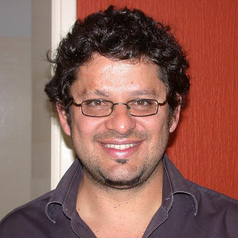
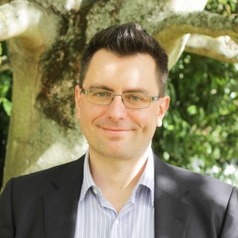
Mario Weick
Professor of Behavioural Science, Durham University
I am a Behavioural Scientist working at Durham University. My research focuses on how social hierarchies impact people’s thoughts, feelings, and actions. I am also engaged in translational work on behaviour change.
Less ![]()

Mario I Aguilar
Professor of Religion and Politics, Director of the Centre for the Study of Religion and Politics, University of St Andrews
Mario I Aguilar is Professor of Religion and Politics, and Director of the Centre for the Study of Religion and Politics (CSRP) at the University of St. Andrews, Scotland, U.K. He is the author of several works on Pope Francis, including Pope Francis: His Life and Thought (2014), and Pope Francis: Journeys of a Peacemaker (2022). He has worked in African countries for the past 35 years after his doctoral studies at the School of Oriental and African Studies of the University of London.
Less ![]()
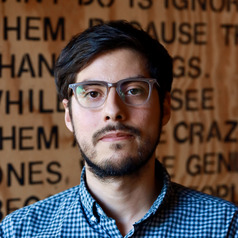
Mario Orospe Hernández
Ph.D. Candidate in Religious Studies, Arizona State University
A Fulbright scholar from Mexico City, Mario Orospe Hernandez is a doctoral candidate in Religious Studies at Arizona State University. He collaborates as a research assistant in the multi-year research project "Beyond Secularization: Religion, Science, and Technology in Public Life."
He is interested in understanding the relationship between religion, capitalism, and technology. Thus, his Ph.D. dissertation examines the impact of rituals and spirituality on the regimes of value, materiality, and labor of two poles of the tech-industry commodity chains: lithium mining in Bolivia and the development of technologies in Silicon Valley.
His first book, "Biopolítica y Liberación: la noción de vida humana en Agamben y Dussel", was published by the Argentinean Publisher Prometeo in 2023.
Less ![]()

Mario Surya Ramadhan
Researcher, Badan Riset dan Inovasi Nasional (BRIN)
Mario Surya Ramadhan is a researcher at the Research Center for Politics, National Research and Innovation Agency Indonesia. His reserach interests include international security, foreign policy, and Indo-Pacific dynamics.
Less ![]()

Marion Cromb
Research Fellow in Physics, University of Southampton
Marion Cromb is currently a Research Fellow at the University of Southampton. They completed their PhD at the University of Glasgow. Their research interests are in various phenomena where both quantum mechanics and general relativity come into play.
Marion was born in London in 1995 and completed an Art Foundation year at Central Saint Martin's before studying an MSci Physics at the University of Birmingham, where their undergraduate and summer projects focused on quantum optics. At the University of Birmingham they were layout editor and frequent columnist for the university's science and technology magazine 'SATNAV'.
Less ![]()

Marion Gibson
Professor of Renaissance and Magical Literatures, University of Exeter
I am Professor of Renaissance and Magical Literatures, and work in the Humanities Department at the Penryn Campus with History and English colleagues.
My research investigates the relationships between writings about magic and the supernatural and those about identity (national, local, sexual, religious and so on) in modernity – i.e. from around 1500 to the present day. I’m interested in meetings between cultures and disciplines, past and present, and how fiction and scholarly writing impact on and express lived identities today.
At present I'm writing Rediscovering Renaissance Witchcraft (Routledge, 2016), a book examining the ways in which sixteenth and seventeenth century writings on witchcraft have continued to inspire modern literature, especially popular novels, poems and films in Britain and America.
I'm also the author of Imagining the Pagan Past: Gods and Goddesses in Literature and History since the Dark Ages. (London and New York: Routledge, 2013), Witchcraft Myths in American Culture (New York: Routledge, 2007). Possession, Puritanism and Print: Darrell, Harsnett, Shakespeare and the Elizabethan Exorcism Controversy (London: Pickering and Chatto, 2006), Reading Witchcraft: Stories of Early English Witches (London and New York: Routledge, 1999), with Garry Tregidga and Shelley Trower, Mysticism, Myth and Celtic Identity (London: and New York: Routledge, 2012) and with Jo Esra, The Arden Shakespeare Dictionary of Shakespeare’s Demonology (London: Arden/Bloomsbury).
Less ![]()

Marion Humbert
Postdoctoral Researcher in Immunology, Karolinska Institutet
I am a postdoctoral researcher in the field of Immunology (T cell responses in particular), currently working in the group of Prof. Johan Sandberg, Center for Infectious Medicine, Department of Medicine Huddinge, Karolinska Institutet, Sweden, with a particular focus on mucosal-associated invariant T (MAIT) cells.
Before joining Johan Sandberg’s group, I completed a first postdoctoral training in the group of Prof. Annika Karlsson at the Division of Clinical Microbiology, Department of Laboratory Medicine, Karolinska Institutet, where I investigated T cell responses to viral infections.
I obtained my MSc (Immunology, Microbiology, Infectious diseases) from Grenoble Alpes University, France, and my PhD (Immunology) from the University of Geneva, Switzerland (Prof. Stéphanie Hugues’ group). My PhD work aimed at investigating the modulation of peripheral T cell responses by unconventional antigen-presenting cells, in the contexts of anti-tumoral immunity and autoimmunity.
Less ![]()
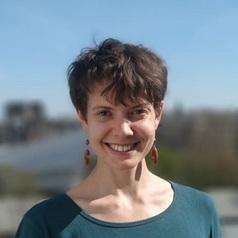
Marion Leroutier
Postdoc Fellow, Institute for Fiscal Studies
I’m an applied environmental economist focusing on two major environmental issues, ambient air pollution and climate change. I'm working on the effectivenes of climate policy, in particular in the energy and transport sectors, the societal costs of air pollution, and the determinants of support to green policies.
Less ![]()
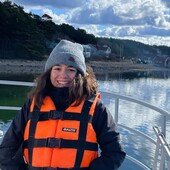

Marion Rouault
Chargée de recherche CNRS en neurosciences cognitives, Institut du Cerveau et de la Moelle épinière (ICM)
Dr. Marion Rouault est chargée de recherches au Centre National de la Recherche Scientifique. Ses recherches en neurosciences cognitives portent sur les mécanismes psychologiques et cérébraux de construction de la confiance en soi et sont conduites à l’Institut du Cerveau à Paris.
Less ![]()

Marion Sturges
Academic Professional Advisor and Lecturer in Education, Western Sydney University
Dr Marion Sturges is an experienced educator of over 33 years. She currently works at Western Sydney University leading a team to prepare preservice educators to become classroom teachers. Marion has led and participated in numerous research projects working collaboratively with other researchers and educators. The focus of these projects is working with marginalised members of the community, including children, people with disability, and women to ensure their rights are met and exploring how the place can support or inhibit rights.
Less ![]()

Marion Tempest Grant
PhD Candidate, Communication & Culture, York University, Canada
Marion Tempest Grant is a Ph.D. Candidate in the Communications and Culture program at York University in Toronto, Canada. She is a Research Assistant on the Bearing Witness Project.
Less ![]()


Marissa Nivison
Post-Doctoral Researcher, Department of Psychology, University of Calgary
Marissa is a Post Doctoral researcher at the University of Calgary where she studies parent-child relationships.
Less ![]()
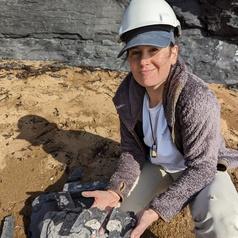
Marissa J Betts
Senior Research Fellow in Earth Science, University of New England
Marissa J Betts is a DECRA-funded Senior Research Fellow in Earth Science at the University of New England in Armidale, Australia. She specialises in sedimentary geology and invertebrate palaeontology, with a focus on some of the earliest complex skeletons in the fossil record. Her research primarily investigates the early Cambrian Period (approximately 538–509 million years ago). Marissa works both in the ‘nuts and bolts’ of palaeontology—identifying, describing, and interpreting fossils—and their broader applications to geological questions. Her research aids in dating and correlating rock formations globally, interpreting past environments, reconstructing ancient continental plates, and refining the geological timescale. She is currently the Secretary of the International Subcommission on Cambrian Stratigraphy. Marissa has been recognised as an STA Superstar of STEM, NSW Young Tall Poppy, A.H. Voisey Medalist, and Walter Howchin Medalist. She also directed the award-winning film Rola[Stone] about the inseparable connection between geology, landscape and culture on Anaiwan Country in NSW.
Less ![]()

Marit Haldar
Professor of Sociology, Oslo and Akershus University College of Applied Sciences
I am a professor of sociology at the University College of Oslo and Akershus in Norway. My main interests are gender studies, social politics and childhood and family Research.
My work includes analysing gender, the welfare state, vulnerable subjects and lately also differences in healthcare treatment to look at social inequality. I study standards and the general cultural understandings that produce what is understood as different, or deviant.
II have also published several international articles about research methods. Within qualitative methods I've discovered untapped data sources and developed new procedures.
Less ![]()

Marius Boeltzig
PhD Candidate in Psychology, University of Münster
Memories not only contain information about the past. Instead, they also help us predict the future and generate expectations about what will happen next in a situation. When a memory is recalled to make predictions, it can be altered, for example if the prediction was wrong (prediction error; PE). We are interested in the extent to which and how PEs can alter memories, and the properties of episodic PEs that trigger such changes.
Building on a previous project in which the type of PEs was (qualitatively) manipulated, we will manipulate episodic PEs quantitatively. In addition, we will use social interactions as naturalistic, personally meaningful stimuli. We will use a multi-stage paradigm in which subjects' brain activity is measured both during encoding and during retrieval of episodes in MRI.
Less ![]()
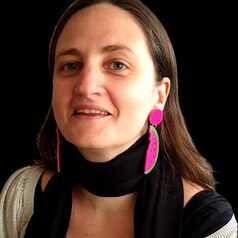
Mariya Ivancheva
Senior Lecturer, Strathclyde Institute of Education, University of Strathclyde
Mariya Ivancheva (University of Strathclyde) is an anthropologist and sociologist of higher education and labour whose work focuses on the casualisation and digitalisation of academic labour, the re/production of intersectional inequalities at universities and high-skilled labour markets, and the role of academics and students in processes of social change especially in transitions to/from socialism. She is the author of The Alternative University: Lessons from Bolivarian Venezuela (Stanford UP 2023). @mivanche
Less ![]()
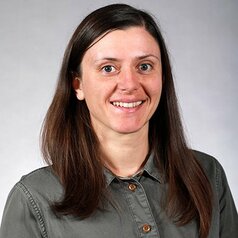
Mariya Zheleva
Assistant Professor of Computer Science, University at Albany, State University of New York
Dr. Zheleva’s research focus is on wireless networks for infrastructure-challenged regions, characterized with low-bandwidth Internet gateways, lack of reliable electricity and sparse populations. In order to connect such regions, she has designed distributed cellular network systems to provide voice, text messaging and data connectivity. She is also working on Dynamic Spectrum Access systems to for long-distance high-bandwidth connectivity.
In the past, Dr. Zheleva has worked on other projects related to wireless networking including monitoring, medium access control for 60 GHz networks and smart phones.
Less ![]()

Marjan Biria
Research Fellow of Mental Health Neuroscience, UCL
I have a Bachelor's degree in Clinical Psychology and a Master's degree in Neuroscience. My master's project was about predicting schizophrenia development in patients with a high genetic predisposition using high-density EEG with 256 electrodes. I also have a background in Computer Science.
During my PhD in Cognitive Neuroscience from the University of Cambridge, under the supervision of Professor Trevor Robbins and with Professor Barbara Sahakian as my advisor, I studied compulsive behaviour in patients with OCD using clinical scales and a computer task to measure habitual versus goal-directed behaviour. We used 7T proton Magnetic Resonance Spectroscopy (1H-MRS) to measure neurochemical imbalance in brain regions important in the pathophysiology of OCD.
After designing and developing a new computer paradigm to measure checking behaviour (one of the most common symptoms of OCD) in a laboratory setting, I also studied the relationship between brain metabolites and checking behaviour in patients with OCD using 7T 1H-MRS.
Additionally, I also studies OCD symptoms of clozapine-treated patients with schizophrenia, showing OCD symptoms as a consequence of their treatment, under clinical supervision of Dr Emilio Fernandez-Egea. We used clinical scales and novel computer tasks to characterise clinical symptoms in patients with OCD, schizo-OCS, pure schizophrenia compared to each other and to healthy controls.
At the moment I am a Post-doctoral Research Fellow at UCL, working with Professor Argyris Stringers and Dr Georgina Krebs. I am designing a new computer task that allows us to capture the relevant factors underlying improvements in Cognitive Behavioural Therapy, and model them using mathematical models.
Less ![]()

Marjolaine Krug
Senior Scientific Advisor, University of Cape Town
Marjolaine Krug holds a PhD in physical oceanography from the University of Cape Town. Her research has focused on the dynamics and variability of the Agulhas current as well as interactions between the Agulhas current and the coastal and shelf regions. She has worked extensively with satellite remote sensing data and pioneered the deployment of underwater gliders in the Agulhas current. Krug is currently employed as a senior scientific advisor within the South African Department of Forestry, Fisheries and the Environment, where she manages the national Oceans and Coastal Information Management System.
Less ![]()

Marjorie Sarbaugh-Thompson
Professor of Political Science, Wayne State University
Marjorie Sarbaugh-Thompson is a professor of Political Science at Wayne State University. Her research focuses on state legislative term limits and legislative oversight of the executive branch. She was the principal investigator on a major study of term limits in Michigan that involved interviews with 460 state legislators over 10 years as Michigan implemented a state term limits ballot initiative. She participated in two studies of legislative oversight of the executive branch in collaboration with the Levin Center at Wayne State University’s Law School, a 50 state study of oversight and a study of contract monitoring in selected states. She also serves as the Academic Director of the State Oversight Academy at the Levin Center for Oversight and Democracy.
Less ![]()
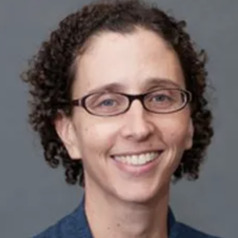
Marjorie N. Feld
Professor of History and Society, Babson College
Marjorie N. Feld's teaching and research interests include U.S. social, labor, and gender history, along with the history of global human rights movements, food justice, and sustainability. She is a member of the Academic Advisory Councils of the Jewish Women's Archive and Jewish Voice for Peace.
Her first book, Lillian Wald: A Biography, published in 2008 by University of North Carolina Press, won the Saul Viener Book Prize of the American Jewish Historical Society, an award presented biannually to an "outstanding book in American Jewish History." At Babson, she received a Nan Langowitz Women Who Make a Difference award in 2009, the Martin Luther King Leadership Award in 2014, and the Babson Pride Award in 2017. From 2011-2015, she was the faculty director for Babson's Center for Women's Leadership. Her second book, Nations Divided: American Jews and the Struggle Over Apartheid, was published by Palgrave MacMillan in July 2014. In 2019-2020, Feld was a Goldstein-Goren Fellow in the Skirball Department of Hebrew and Judaic Studies at New York University. Her third book has just been published by New York University Press, titled The Threshold of Dissent: A History of American Jewish Critics of Zionism.
Less ![]()

Mark Andrew
Senior Lecturer in Housing Economics, City, University of London
Dr. Mark Andrew joined the real estate group at Bayes (formerly Cass) in January 2007. He was previously a Lecturer in Economics at the University of Reading. Mark's research interests are in the fields of housing economics, micro-econometrics and panel data analysis. Dr. Andrew has published in journals such as Environment and Planning A, Real Estate Economics, Regional Science & Urban Economics, Housing Economics and the Scottish Journal of Political Economy. He has also been involved in a number of government funded projects for the DCLG and Office of the Deputy Prime Minister as well as a number of ESRC funded projects. He is currently serving as a member of the Research Steering Group for the Investment Property Forum (IPF).
Less ![]()

Mark Bailey
Faculty Member and Chair, Cyber Intelligence and Data Science, National Intelligence University
Dr. Mark Bailey writes about the intersection between artificial intelligence, complexity, and national security. He is a faculty member at the National Intelligence University, where he is the Department Chair for Cyber Intelligence and Data Science, as well as the Co-Director of the Data Science Intelligence Center. His work has appeared in publications such as the journal Futures, Nautilus, and Homeland Security Today. Previously, he worked as a data scientist on several AI programs in the U.S. Department of Defense and the Intelligence Community. He is also an Officer in the U.S. Army Reserve. In his spare time, he does ceramics, is a beekeeper, and endeavors to turn his yard into a vegetable garden.
Less ![]()

Mark Barrow
Dean of the Faculty of Education and Social Work, University of Auckland, Waipapa Taumata Rau
Professor Mark Barrow is the Dean of the Faculty of Education and Social Work at Waipapa Taumata Rau, the University of Auckland. He has worked as a secondary school science teacher and as an academic developer and academic director within the NZ polytechnic sector. Mark joined the University in 2007 in the role of Associate Dean Academic in the Faculty of Medical and Health Sciences, a role he held for 11 years. Mark’s research interest is the theory and practice of higher education.
Less ![]()
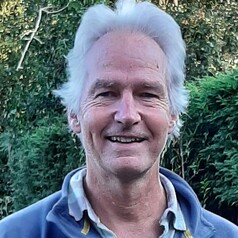
Mark Beaumont
Professor of Statistics, University of Bristol
I am a biologist by background, and I am interested in general problems of statistical inference in population genetics, evolutionary biology, and conservation genetics. Most of my work has involved Monte Carlo statistical methods. Particular areas of application that interest me include: detecting evidence of selection in the genome; modelling demographic history of populations; inference in structured populations; modelling temporally sampled genetic data; inference in agent-based models.
Less ![]()
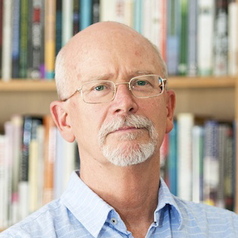
Mark Beeson
Mark Beeson is Professor of International Politics at the University of Western Australia. Before joining UWA at the beginning of 2015, he was Professor of International Relations at Murdoch University. Previously he taught at the universities of Griffith, Queensland, York (UK) and Birmingham, where he was also head of department. He is co-editor of Contemporary Politics, and the founding editor of Critical Studies of the Asia Pacific (Palgrave)
Less ![]()

Mark Bennister
Associate Professor, University of Lincoln
Mark Bennister joined the University of Lincoln in 2018. He is Director, Lincoln Policy Hub and Director of the Lincoln Parliamentary Research Centre (ParliLinc). He was Reader in Politics at Canterbury Christ Church University from 2010 until 2018. Mark was a parliamentary academic fellow 2016-19. He previously held positions at UCL and the University of Sussex. He gained his DPhil from Sussex in 2009. Mark is a an Associate Research Fellow at the Crick Centre, University of Sheffield and was a Visiting Lecturer, Tufts University. Mark worked as an Executive Officer at the Australian High Commission in London from 1998 until 2004. He also worked as a parliamentary researcher at the House of Commons and European Parliament from 1993 until 1997.
Mark is an expert in comparative prime ministerial leadership. He published 'Prime Ministers in Power: A Comparative Study of Political Leadership in Britain and Australia' in March 2012 and 'The Leadership Capital Index' in 2017. Mark gained his doctorate from the University of Sussex (2004-2008), where he was awarded a 1+3 ESRC studentship. Mark has an MSc in Social Research (Sussex 2005), MA in Contemporary European Studies (Loughborough 1993), and BA Hons in Social Sciences (Nottingham Trent University 1990).
Less ![]()
- Market Data





















